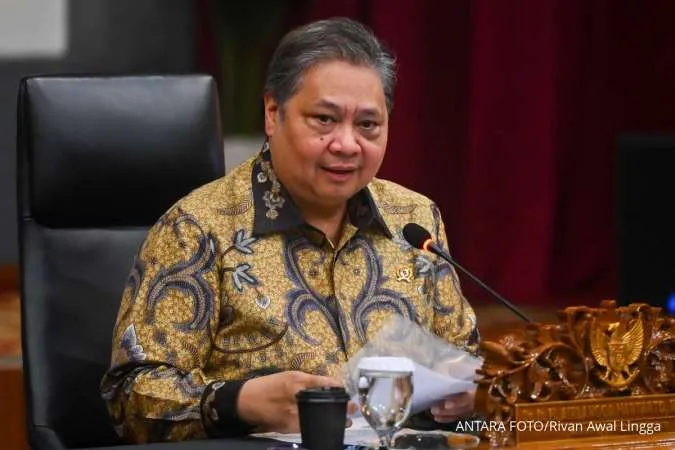JAKARTA — Indonesia has proposed significantly lowering tariffs on important imports from the United States to almost zero as part of ongoing trade negotiations with Washington. In addition to tariff reductions, the country has committed to purchasing $500 million worth of American wheat, according to Indonesia’s chief negotiator and representatives from the U.S. wheat industry.
Airlangga Hartarto, Indonesia’s Coordinating Minister for Economic Affairs and the lead negotiator in the talks, also confirmed plans for the state-owned airline, Garuda Indonesia, to increase its acquisition of Boeing aircraft. This move is expected to be part of a broader trade agreement valued at approximately $34 billion, which is slated for signing next week with U.S. partners.
Indonesia currently holds a trade surplus in goods with the United States, totaling $17.9 billion in 2024, based on figures from the U.S. Trade Representative. Despite this surplus, Indonesian products face a substantial tariff of around 32% when entering U.S. markets. To encourage a more balanced trade relationship and advance negotiations, Indonesia has proposed boosting imports from the U.S. to create better opportunities for American exporters.
Minister Airlangga detailed that the Indonesian government is ready to reduce tariffs on key American exports, especially agricultural products, from their current levels—ranging between zero and five percent—down to nearly zero. He clarified that the exact tariff cuts will be influenced by the concessions Indonesia receives from the U.S. in return.
“This reduction will bring tariffs on major U.S. exports close to zero, but the final rates will depend on the reciprocal tariff levels that the U.S. offers us,” Airlangga explained. This approach aims to foster a more mutually beneficial trade relationship and strengthen economic ties between Indonesia and the United States.

Garuda Indonesia’s Chief Executive Officer has revealed that the airline is currently in talks with Boeing about the potential purchase of up to 75 aircraft. However, representatives from the Garuda group have not responded to requests for further comments on the matter.
Franciscus Welirang, chairman of Indonesia’s wheat flour mills association, stated that the association’s members plan to buy a total of two million tons of wheat through competitive tenders. Welirang, who also serves as a director at Indofood, emphasized that all the members intend to source their wheat from the United States.
He further explained that the American companies involved in this wheat supply deal include well-known industry giants such as Cargill, Bunge Global SA, Pacificor, Archer-Daniels-Midland, Columbia Grain International, and United Grain Corporation.
According to data from the Indonesian government, the United States exports a variety of products to Indonesia, including soybeans, petroleum gases, and aircraft.
When questioned about whether military equipment or defense deals were part of the ongoing trade negotiations, Airlangga Hartarto, Indonesia’s Coordinating Minister for Economic Affairs, clarified that such items were not included in the discussions.
Susiwijono Moegiarso, a senior official at Indonesia’s Coordinating Ministry for Economic Affairs, told Reuters that, in exchange for these concessions, Indonesia has requested that the United States provide preferential tariff treatment on some of Indonesia’s key export goods. These include products like electronics, textiles, and footwear. “Our goal is to have these tariffs reduced as much as possible,” he said.
Additionally, Indonesia has presented investment opportunities to the U.S. in its critical minerals sector, targeting resources such as copper, nickel, and bauxite. This initiative is part of Jakarta’s broader strategy to attract foreign investment in key industries and strengthen economic ties between the two countries.
Together, these developments highlight Indonesia’s efforts to deepen trade relations with the U.S., seeking greater market access for its exports while simultaneously offering significant import opportunities and investment prospects to American businesses.




